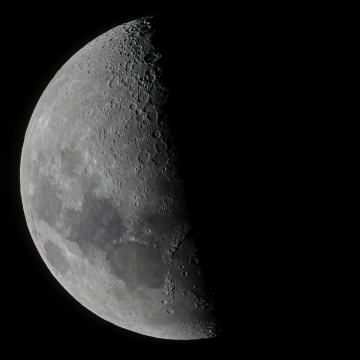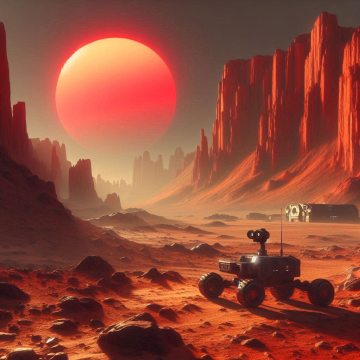The word "astronaut" conjures up images of white spacesuits, ships floating in the vacuum of space, and exploring unknown places beyond our planet. Astronauts are the brave pioneers who take humanity beyond the Earth's atmosphere, towards the stars. This article explores who astronauts are, what it takes to become one, their experiences in space, and their contributions to science and humanity.
Who are the Astronauts?
An astronaut is a person trained to travel and work in outer space. Astronauts can be scientists, pilots, engineers, doctors or military personnel, and come from various backgrounds and countries. The term "astronaut" is mainly used in the United States, while "cosmonaut" is used in Russia and "taikonaut" in China.
History of Astronauts.
Manned space travel began in the 1960s, in the midst of the Cold War, when the United States and the Soviet Union competed for space supremacy. Yuri Gagarin, a Soviet cosmonaut, became the first human being to travel into space on April 12, 1961, orbiting the Earth in the spacecraft Vostok 1. Shortly after, Alan Shepard became the first American astronaut in space on May 5, 1961, on the Mercury-Redstone 3 mission.
The space race reached its climax when Apollo 11 astronauts Neil Armstrong and Buzz Aldrin landed on the Moon on July 20, 1969. Not only was this mission an impressive technical achievement, it also symbolized the limitless potential of exploration. human.
The Astronaut Selection and Training Process.
Becoming an astronaut is a rigorous and highly competitive process. Space agencies, such as NASA (United States), Roscosmos (Russia), ESA (Europe), and CNSA (China), have strict criteria and exhaustive training programs for their astronauts.
Basic requirements.
- Education: Candidates generally need an advanced degree in engineering, physical sciences, biological sciences, or mathematics. Many agencies also require relevant professional experience.
- Experience: Candidates must have at least three years of related professional experience or at least 1,000 flight hours as pilot in command in jet aircraft.
- Physical Condition: Astronauts must pass rigorous medical examinations. They should have excellent vision, controlled blood pressure, and good general physical condition.
Selection process.
The selection process can last more than a year and includes multiple stages:
- Application and Initial Evaluation: Candidates apply and are evaluated based on their qualifications and experience.
- Interviews and Medical Evaluations: Those selected go through exhaustive interviews and detailed medical evaluations.
- Psychological Evaluations: Given the stress and isolation of space, candidates are also psychologically evaluated.
Training.
Once selected, astronauts undergo intensive training that can last two to three years:
- Technical and Scientific Training: Includes learning about spacecraft systems, International Space Station (ISS) operations, and scientific procedures.
- Physical Training: Astronauts must remain in excellent physical shape. This includes training in space suits and swimming in neutral gravity suits to simulate weightless conditions.
- Survival Training: Since emergency landings can occur anywhere in the world, astronauts receive survival training in different environments, such as deserts, jungles, and oceans.
- Simulator Training: Flight simulators and space modules help astronauts practice maneuvers and procedures in a safe and controlled environment.
Life in Space.
Adaptation to Space.
One of the biggest challenges for astronauts is adapting to microgravity. In space, everything floats, including astronauts, which can cause disorientation and space sickness during the first few days. Over time, the body adapts, although muscles and bones can weaken due to the lack of gravity, requiring a regular exercise regimen.
Work in Space.
Most astronauts spend their time on the International Space Station (ISS), an orbital laboratory located about 400 kilometers above Earth. Your tasks include:
- Scientific Research: Astronauts conduct experiments in a variety of fields, including biology, physics, materials science, and medicine. Microgravity allows for research that is not possible on Earth.
- Maintenance and Repairs: The ISS requires constant maintenance, from routine repairs to replacement of major components.
- Spacewalks (EVA): Spacewalks are necessary for the installation and repair of equipment outside the station. These activities are physically demanding and require extensive training.
Daily life.
Living on the ISS presents unique challenges. Astronauts have a structured schedule that includes work, exercise and rest. Food supplies are limited, and most food is dehydrated or canned. Personal hygiene is also a challenge, as there are no showers; Astronauts use damp cloths to clean themselves.
Astronaut Contributions.
Scientific advances.
Astronauts have contributed significantly to our understanding of space and science in general. Experiments conducted on the ISS have led to important discoveries in areas such as:
- Medicine: Microgravity research has helped develop new treatments for diseases such as osteoporosis and cancer.
- Biology: Studies on the growth of plants and microorganisms in space are helping to develop techniques for agriculture and food production in extreme environments.
- Physics: Experiments in fluid, combustion, and materials physics have provided insights that improve technology and industry on Earth.
Inspiration and Education.
Astronauts also play a crucial role in inspiring new generations. Their stories and experiences motivate young people to pursue careers in science, technology, engineering and mathematics (STEM). Space agencies often organize educational and outreach programs in collaboration with astronauts to encourage interest in space exploration.
International Collaboration.
The ISS is a symbol of international collaboration, with astronauts from different countries working together to advance science and exploration. This joint effort has shown that, despite land differences, nations can come together to achieve great goals.
Challenges and Future of Astronauts.
Risks and Sacrifices.
Being an astronaut carries significant risks. Space missions are dangerous, with threats such as exposure to cosmic radiation, depressurization, and technical failures. Additionally, astronauts are often separated from their families for long periods, which can be emotionally difficult.
The Future of Space Exploration.
The future for astronauts is bright and full of exciting opportunities. With a return to the Moon planned for the next decade and plans for manned missions to Mars, astronauts are at the forefront of space exploration. NASA, SpaceX and other organizations are developing new technologies and spacecraft to take humans further than ever before.
Astronauts are more than just space travelers; They are explorers, scientists and ambassadors of humanity. His work not only expands our knowledge of the universe, but also inspires future generations to dream of the stars. As we advance to new frontiers in space exploration, astronauts will continue to be the pioneers who guide us into the unknown, carrying with them hope and the indomitable spirit of humanity.






